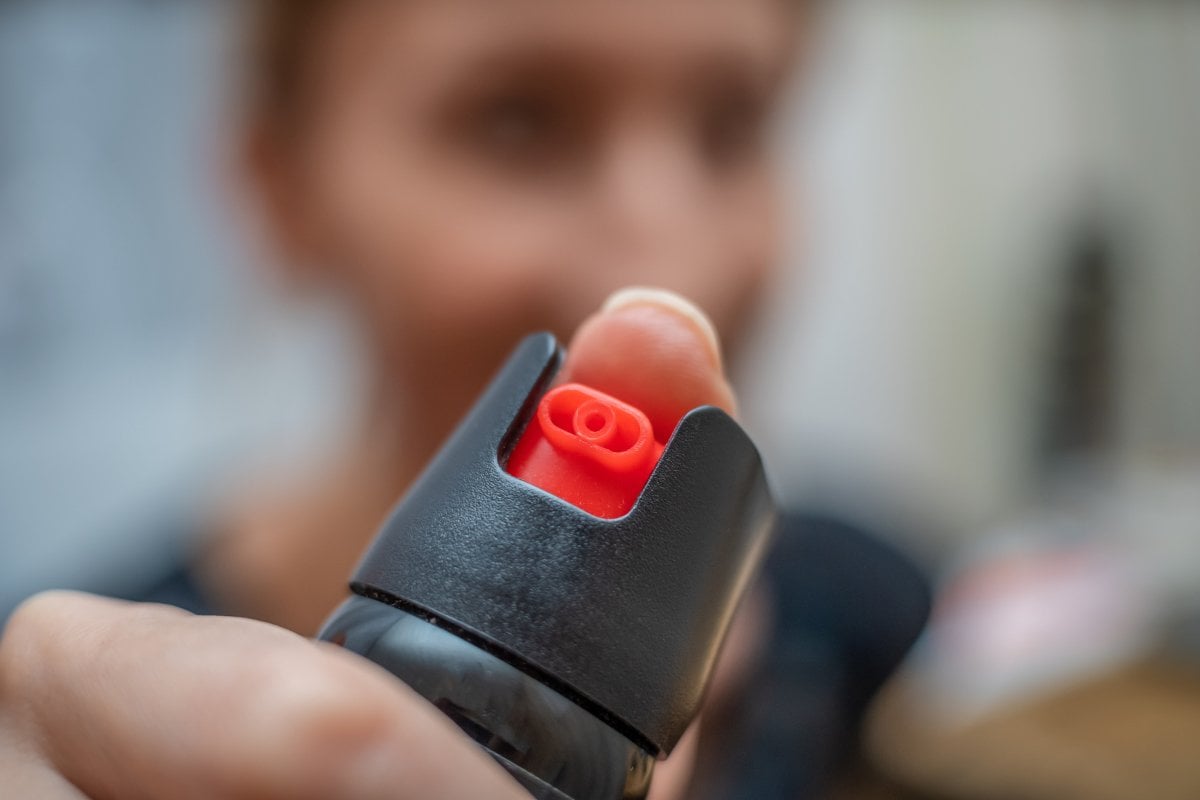
There's an Australian petition that is growing by the minute.
A Melbourne woman has called on the Federal Government to reconsider its ban on possessing pepper spray for self-defence. The petition wishes for it to be legal for women who have no criminal history of violence to carry pepper spray to protect themselves. There are thousands of signatures.
Women are scared for their lives right now. There's no question.
But there are a number of complications when it comes to legalising pepper spray as part of a national bid to end violence against women.
Watch: women and violence, the hidden numbers. Post continues below.
Why legalising pepper spray isn't the answer.
There are some pragmatic cons to legalising pepper spray.
Pepper spray comes in the form of an aerosol and it's made from a type of capsicum chilli pepper. It's used to incapacitate people and the effects last for about an hour, causing temporary blindness, difficulty breathing and a burning sensation on the skin. Police carry pepper spray, and reports suggest it is "relatively safe" but does cause intense pain.
This recent petition wishes for it to be legal for women who have no criminal history of violence to carry pepper spray. The challenges of establishing a federal-binding rule that only applies to one gender would be a legal minefield for the government, and near impossible to legislate amid discrimination laws.

Top Comments
I did hear the other day that one could carry a small can of spray paint, as you can spray that in someone's face with a similar effect and you will mark them with paint.